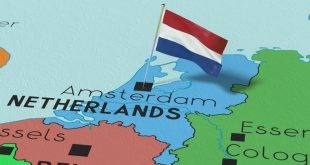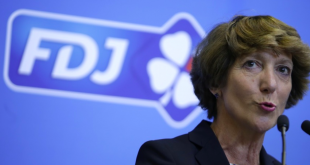
For new operators entering the sports betting sector, providing a new and innovative football offering represents a challenging obstacle, as brands seek to compete against and take market-share of established players.
Ahead of next week’s much anticipated Betting on Football Conference, SBC spoke to Carousel Group’s Chief Operations Officer, Phillip Wilson, as the firm undertakes its long term strategy to grow into the sports betting space in 2019.
SBC: Can you map out some of the key elements that you think are needed for a new sports betting operator to compete against the already well established brands?
Phillip Wilson: There are some obvious advantages to being a new brand, we can use agility, rapid decision making (which leads us to be able to react more quickly), and mistakes that we make are less obvious (because less people will notice them).
There is a single, over-arching key element to competing against well established brands, and that is to embrace and use our advantages in the most effective way, and turning every problem we encounter into a gift. Every single challenge should be embraced as a market gap, or a better way of working – and it is responding to these quickly that will allow us to make small wins.
SBC: When it comes to competing in a saturated market, how important is that new sportsbooks bring a unique offering to their product?
PW: Let’s be completely honest: competing with the existing operators is a mountain to climb in itself. Differentiating in this market with a unique idea in reality means to specialise in something – this could mean a mobile only offering, it could mean offering a new feature you think the players didn’t even realise they were missing, or it could simply be an alternative market position such as going after a specific demographic or recruiting through new and interesting channels such as Telegram.
Being unique in itself is particularly risky, and so I would suggest that a combination of basic competitiveness and a unique position can offer enough of an edge to get started. The unique offering could be something incredibly simple, but enough to retain a player – the reason I use Revolut compared to Transferwise is the user experience, something incredibly subjective, but enough to make me loyal – any brand, old or new can offer something as simple as an enhanced experience to give people a reason to come back.
SBC: How important is it that a new operator offers a wide range of leagues and markets as it seeks to establish a new audience?
PW: The audience may be new to us, but the audience itself is not new – we are entering a very well established market, and with that brings expectations of availability of a wide range of football markets from across the world.
To be competitive, any new operator must offer the pre-game, in-play and props that mature players have come to expect – great welcome bonuses can only get you so far. Unlike most new operators, we aren’t running on a white label, and we have a lot of trading capability in-house, which means we can enhance the feeds, offer interesting variations on pricing, and offer features such as the ability to create your own bets. We see this as critical so that we don’t suffer from the copycat syndrome.
SBC: When it comes to building a presence as a new football betting brand, how important is a unique marketing presence?
PW: Uniqueness in such a saturated industry is a very difficult thing to achieve, and it’s incredibly subjective. In the world of food, the California roll was created to make little rolls of fish more appealing – some genius decided to take the same food and flip it inside out. It’s exactly the same – but different, more palatable.
We haven’t seen this yet in football betting, we haven’t seen any of the promised holy grail of proper socialisation, gamification, or a unique market position. We’ve seen many attempts – mobile only brands, great ambassadors, talking to people in unique ways, but nothing that has truly changed much in the last 10 years. Great brands exist because they fulfilled the magic trio of timing, funding and people – but innovation and uniqueness comes from creating a need that didn’t previously exist. We are yet to see a truly Goliath brand, companies like bet365 come close, but we haven’t yet seen an Amazon or an Apple – we see collections of very similar groups all operating multiple brands. No-one has yet created anything so unique that players cannot consider using a competitor for fear of missing out.
SBC: What type of role does affiliate marketing play in helping a brand establish an audience and retain newly acquired customers?
PW: Affiliate marketing is key in every ecommerce business and in many ways offers a shortcut to market – affiliates are generally experts in generating volumes of potential customers whereas a new brand can struggle to achieve that in a material way. It is particularly relevant in grey markets where the traditional routes to market are not as freely available.
In our first year, affiliate marketing will be critical as it helps to build trust, legitimacy, and deliver the all important volume that allows us to then extend the reach. It’s absolutely critical in the early stages, and even more critically, it allows you to effectively control spend in a way that the much more variable approaches of PPC and above the line marketing cannot.
______________
This year’s Betting on Football, which will be the 6th edition of the largest international football and betting trade conferences, is due to take place at Stamford Bridge from 19-22 March.
It will be attended by 2,000 senior delegates, in addition to 200 leading industry speakers, 40 key sessions, and over 40 exhibitors. For more information, please click HERE.
Phillip Wilson will be speaking at next week’s conference, further discussing what new industry incumbents really bring to the sector’s football scene in 2019. Wilson will sit alongside a well informed panel, which includes Sadok Kohen, CEO, BetBull, Adam Wilson, Co-Founder, Bookee and Stuart Tilly, CEO, Argyll Entertainment.









